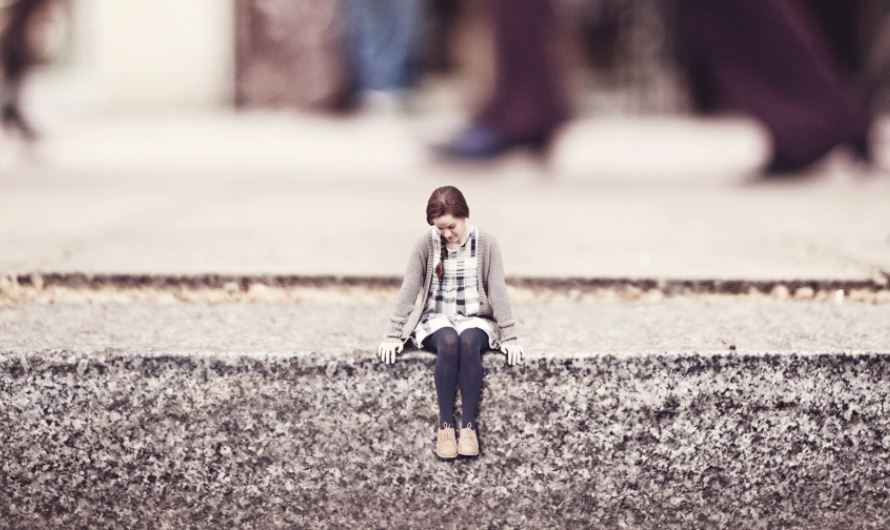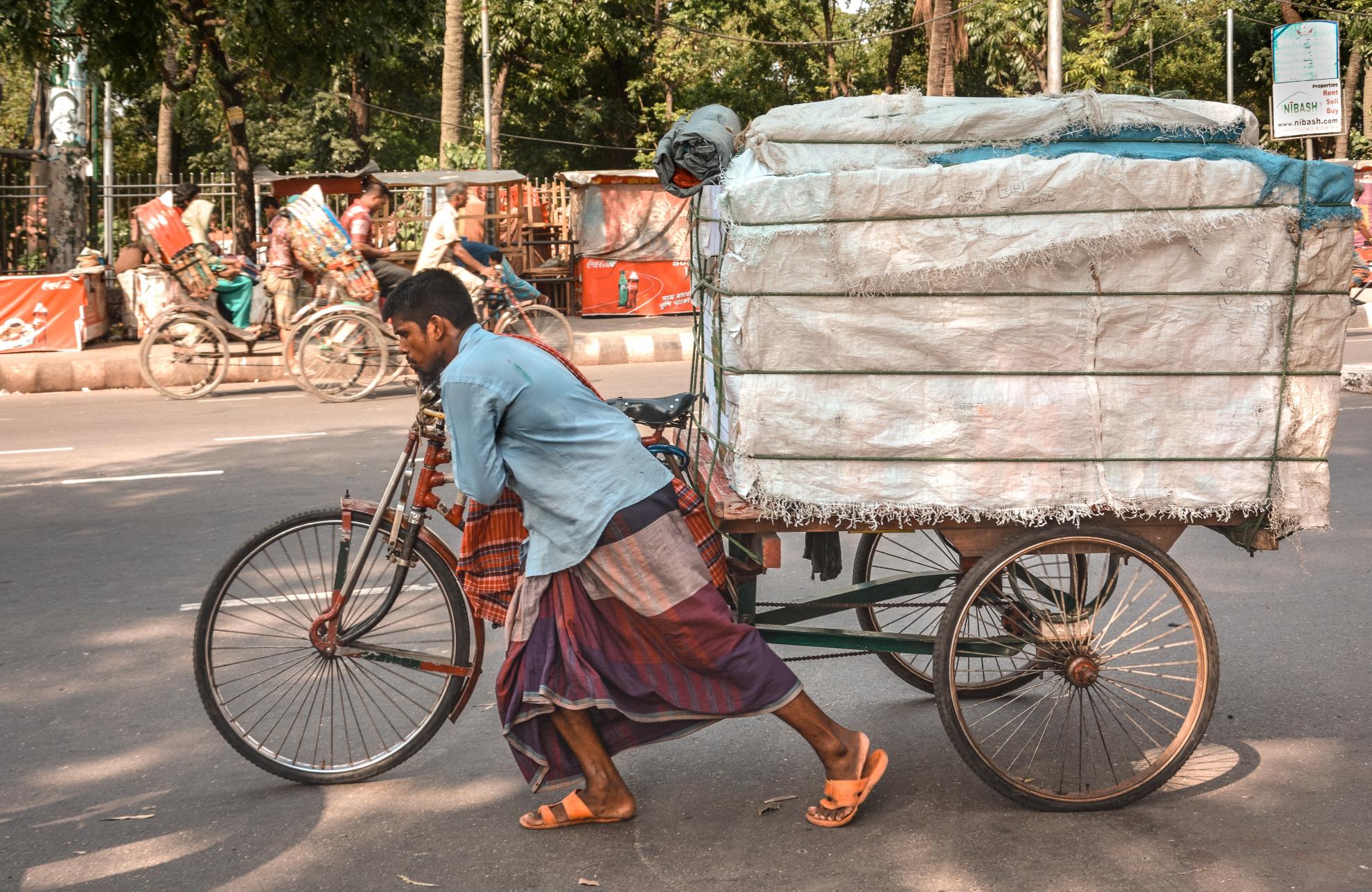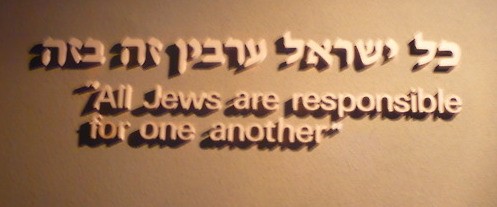June 10, 2025|י"ד סיון ה' אלפים תשפ"ה Naso 5785 - The Greatest Generation
Print ArticleWhen the Satmar Rebbe, Rabbi Yoel Teitelbaum, came to Israel, a Jew came and asked him for a blessing before his departure. This Jew expressed the fear that after the Satmar Rebbe returned to America, there would be no one worthy to ask for a blessing.
The Satmar Rebbe told him " If you are looking for a tzaddik, someone to give you a bracha, go find any Jew with a number tattooed on their arm from the war…There is no greater person to offer you a bracha!”
Last week, we read all about the census of the Jewish People. However, there is one group that is LEFT OUT of the census, Shevet Levi. Shevet Levi, of course, has been separated from the rest of Am Yisrael because they serve in the Beis HaMikdash.
Levi had four children: a daughter, Yocheved, the mother of Aharon, Miriam, and Moshe Rabbeinu. And then he had three sons: Kehas, Gershon, and Merari. And besides Moshe, Aharon, and their families, the rest of Levi is split into these three groups.
What is interesting, though, is that if you look at the language that is used in the count of each of these three groups, it is different for each one:
נָשׂא אֶת רֹאשׁ בְּנֵי קְהָת מִתּוֹךְ בְּנֵי לֵוִי לְמִשְׁפְּחֹתָם לְבֵית אֲבֹתָם:
Make a count of the sons of Kohath from among the children of Levi by their families, according to their fathers' houses.
נָשׂא אֶת רֹאשׁ בְּנֵי גֵרְשׁוֹן גַּם הֵם לְבֵית אֲבֹתָם לְמִשְׁפְּחֹתָם:
Take a census of the sons of Gershon, of them too, following their fathers' houses, according to their families.
Here the language is virtually the same as Kehas, but there is an added phrase “GAM HEIM” them as well.
בְּנֵי מְרָרִי לְמִשְׁפְּחֹתָם לְבֵית אֲבֹתָם תִּפְקֹד אֹתָם:
[As for] the sons of Merari, you shall count them by their families, according to their fathers' houses.
In this case, there is no mention of NESIAS ROSH, raising up their heads.
So, I’ll ask you two questions: First, Why the small addition of “GAM HEIM” for Bnei Gershon? Second, why the REMOVAL of Naso Es Rosh for Merari?
Rav Moshe Sofer, known as The Chasam Sofer, offers a beautiful approach. He writes that the Bnei Levi are not counted together as one of the twelve tribes of Am Yisrael because they are there to be representatives of ALL OF AM YISRAEL. And in that sense, the three houses of Levi represent three different phases in which the Jewish People find ourselves.
The first is KEHAS. The word Kehas means “To gather”. When Yaakov gives his bracha to Yehuda, he tells him “V’Lo YiKhas Amim” He will be someone who gathers nations.
Kehas, then, refers to when Am Yisrael are all gathered together in Eretz Yisrael. When we are in our ideal state, living as a people in our land. When we are living in this way, we are connected back to our ancestors, living out their dream. And thus, the Torah says that as we count Kehas, their heads are lifted, as they are connected L’Beis Avosam, to those who came before them.
Gershon comes from the language of gerusha, to divorce or drive away. This refers to Am Yisrael when we are in galus. Yes, we are far from where we are supposed to be. However, we know that even when we are distanced from Eretz Yisrael, rejected from the land, still our heads can be raised up if we stay connected L’Beis Avosam, to the ways of our ancestors. They help to prop us up and allow us to continue to be successful even in galus. And to emphasize that being galus doesn’t diminish our ability to be uplifted by our connection to our ancestors, the pasuk says Seu es Rosh GAM HEIM” - THEM TOO! Even when we aren’t in Eretz Yisrael the zechus of those who came before us holds us up!
And that brings us to the third family, MERARI. MERARI is from the language of MAROR and refers to the times in our history where to be a Jew, whether in Eretz Yisrael or in Galus, is extremely bitter. A time when Jews are not able to thrive in galus but find ourselves under extreme pressure. Times, writes the Chassam Sofer, when Jews are asked to give up their lives al Kiddush Hashem. When Jews are murdered just because we are Jews. When Jews are willing to stand up and identify proudly as Jews and fight for other Jews, no matter the danger, no matter the threats.
In this generation, writes the Chassam Sofer, and I want to read you his stunning words:
מנשאים את ראש אבותם ומכל שכן שאינם צריכים זכות אבות
NOT ONLY do they NOT REQUIRE Zechus Avos, THEY – the members of the Merari generation - RAISE UP THE HEADS OF THEIR ANCESTORS!
And, therefore, he writes, that is why when it comes to MERARI the Torah does NOT WRITE “SEU ES ROSH” LIFT UP THE HEADS of the children of Merari. Not because they are not offered that merit. Rather, because their sacrifice, their willingness to stand up for Torah and Mitzvos at ANY COST – even at the cost of their lives - is SO EXTRAORDINARY, that they don’t need any other merit!
Sometimes we ask ourselves why we were chosen to live in this generation where so much is being asked of us? Can’t we just stay home and mind our own business, go to work, and send our kids to school? I obviously don’t have the answer to that question, but I do have an observation:
I attended a high school graduation this week, and one of the student speakers noted all the things that had gone on in the world since the class of 2025/5785 began high school until now. When they began school they were still wearing masks, as the intense days of COVID came to a close. And they believed COVID would be the defining experience of their generation.
And then, of course, they experienced October 7th and all that followed in Israel, including the explosion of antisemitism in the United States and around the world. This, of course, has been the defining experience of their generation.
And yet, the children growing up during all of this have grown in ways that children in previous generations have not. Yes, they have experienced traumatic events, but they have also learned to persevere, to sacrifice, and to unite with their People. And, of course, it’s not just true of our children, it is true for all of us.
If you would ask me to whom one should go for a bracha today, I would tell you to find someone who spent 400 days in a tunnel and remained committed to his or her faither. I would tell you to go to a soldier who has spent 300 days fighting in miluim, losing his job in the process. I would tell you go to the families who have lost a child to this terrible war. These are the tzadikim of our Marari generation who have given so much to Klal Yisrael.
South African author Alan Paton wrote a book called “Ah, but your land is beautiful” which tells stories about Apartheid in the 1950s.
In the novel, this exchange takes place between Robert Mansfield, a
white South African and Emmanuel Nene, a leader within the black community. Mansfield
had been the headmaster of a white school and he took his school’s sports teams
to play against the black schools. He did so until the department of
education prohibited him, and he resigned in protest.
Nene then comes to meet with Mansfield, impressed by his willingness to resign
his job in protest of the laws of Apartheid.
And he warns him that continuing to fight will cost him dearly.
Nene then asks him: “Aren’t you worried about the wounds?”
Mansfield responds: “I don’t worry about the wounds. When I get up there, which is my intention, the Big Judge will say to me, ‘Where are your wounds?’ and if I say, ‘I haven’t any,’ he will say, ‘Was there nothing to fight for?’ I couldn’t face that question.”
There have been many wounds these past 600+ days. And yet, what is also true is that this time has taught us to no longer live our lives only for ourselves, to be willing to stand up for what we believe in, and to commit ourselves to our Yiddishkeit in ways many of us never have before. It has provided us a opportunity to grow in ways generations before us have not.
Would we choose these wounds? Certainly not. But now that we have them, we must realized we are being called up to be the Bnei Merari, raising up all those who have come before us and paving the way for those who will come after.




